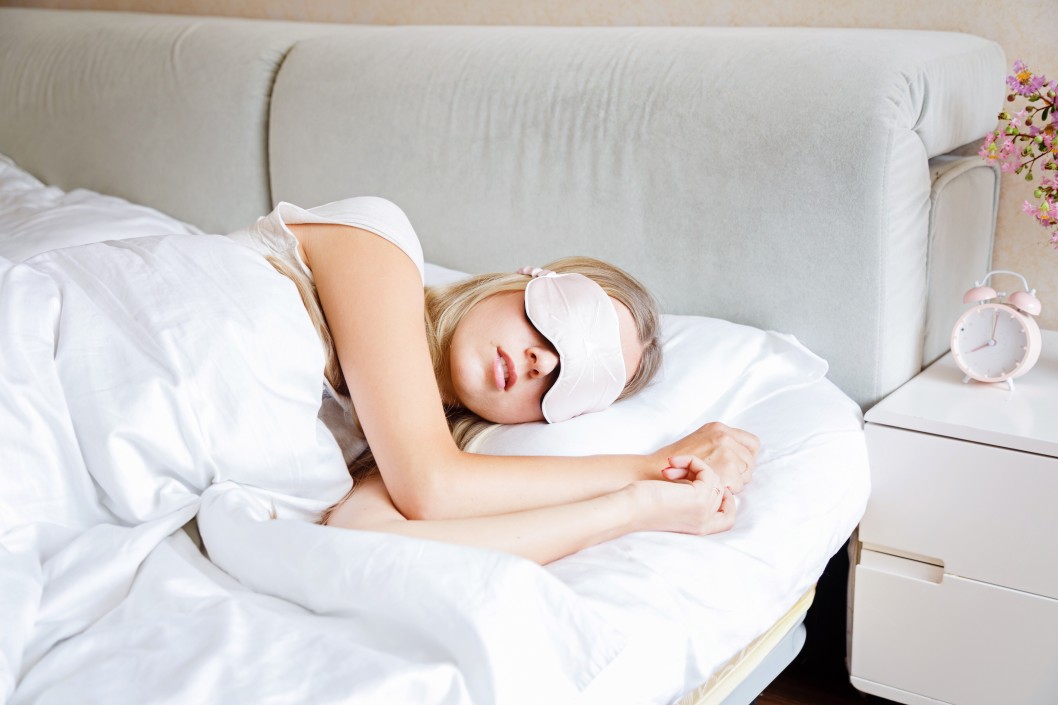
Getting a good night’s sleep can determine whether you’re going to have a good day or a bad day and if there’s one thing, we all want, it’s a full eight hours!
However, we know getting a good night’s sleep isn’t always the easiest thing to do, so with the help of holistic sleep expert Anne Marie Boyhan from The Sleep Care Company.
Here are her five tips to help you catch all those Z’s.
View this post on Instagram
No coffee in the evening!
There’s nothing wrong with a nice cup of coffee in the morning to help start your day.
However, you really shouldn’t drink any coffee after about 2pm as caffeine can make it harder for you to get to sleep.
Anne Marie explained to us: “Drinking caffeine within six hours of sleep can reduce your sleep time by up to 41 minutes, as caffeine has a half-life of six to eight hours, hence if you have a coffee at 4pm half of it is still swirling around by 11pm.”
“My recommendation is don’t have caffeine after 2pm and swap your afternoon cuppa for a decaf, I’m a big fan of Barry’s decaffeinated tea.”
So, try and switch your evening coffee with a different hot beverage such as decaffeinated tea like Anne Marie, matcha tea or even hot chocolate!

Keep Your Bedroom Dark and Cool
“Your bedroom environment should resemble a cave, which means keeping your room cool and dark – so dark that you can’t see your hand in front of your face.”
Having a cool temperature in your bedroom will help you fall asleep faster as it will cool your core body temperature.
Anne Marie told us that the ideal temperature for sleep is 16-18 degrees, and she recommends investing in a fan for summer!
A dark room is good for your sleep as it limits distractions, and potential distributions to your sleep.
“To increase darkness, try blackout blinds or curtains, if you can’t then a sleep mask will be your best friend. Even the light filtering in under a door can disrupt sleep – if I’m staying in a hotel the first thing, I do is get a bath towel and place it at the door to block the hall light!”

Get some exercise during the day
A scientific study shows that adults who exercised for at least 30 minutes a day slept an average of 15 minutes longer than those who did not exercise, as it gives them a deeper sleep.
Exercise can leave you feeling tired so when you go to bed, your body is ready to sleep. It also reduces stress which can impair the quality and duration of your sleep so, make sure to allocate time to exercise each day.
Anne Marie recommends exercising in the first half of the day and engaging in calming rituals in the latter half of the day.
She said: “This works with the natural cortisol pattern in your body which is highest 2 hours after waking and we don’t want to raise it at night, hence meditation, yoga or a gentle walk in the evening is best.
“My personal favourite for the first half of the day is hot yoga! as rigorous exercise 3 hours before bed can disrupt sleep (by raising body temperature which takes 3 hours to lower).”

Switch off your electronics
We’ve all been there – you’re lying in bed unable to sleep so you decide to scroll on social media for a while or to turn the television on.
However, if you want a good night’s sleep you need to switch off your electronics.
“Screen time before bedtime delays your body’s internal clock. It suppresses the release of the sleep-inducing hormone, melatonin, making it more difficult to fall asleep. This is largely due to the short wavelength, artificial blue light that’s emitted by these devices. The more electronic devices you use in an evening, the harder it is to fall asleep and stay asleep.”
Ideally, you should stop screen time at least an hour before bedtime and limit all blue light exposure two hours before by putting your phone on night mode to filter out the blue light.
Anne Marie recommends implementing a screen time curfew.
She said: “Try setting a screen time curfew ideally, 1 hour before bed. Set an alarm on your phone for when you’ll do this and substitute screen time with a book (paperback or audio).”
She also recommends what she calls the ‘Bookend Method’, which is where you put your phone away at least one hour before and after bed in the morning and evening to “bookend your day” with peace.

Consistency is key
And finally, try to keep it consistent!
Try to wake up and go to bed at the same time every day…even on weekends.
When we asked Anne Marie about her morning routine, she explained that waking up at the same time each day is extremely important for your sleep cycle.
“My routine starts in the morning, I get up at the same time every day, 7.30am. This is more important than your going to bedtime and is the foundation of a good sleep routine.”
“I walk outside with no sunglasses for 10 minutes and get sunlight into my eyes within one hour of waking. If I can’t get outside, I use a SAD lamp or light box for this, it’s been life-changing for my sleep and mood!”
When it comes to nighttime routines, Anne Marie has herself and her family down to a tee.
“I have two little girls and together with my husband their bedtime routine starts – putting on jammies, brushing teeth, kissing them good night and reading them a bedtime story.”
“Then I aim for 10.30-11pm for my own bedtime and I’ll wind down by setting my alarm, turning off my phone, and leaving the phone outside my room. I brush my teeth and I write a few lines in my Sleep Journal – this allows me to brain dump all my thoughts and tomorrow’s to-do list so that it’s not swirling around in my head.”
“Then it’s reading a few lines of a book and lights out as I aim for eight hours of sleep.”
Anne Marie admits that she works hard at her sleep routine and that she hasn’t always had one.
“It didn’t exist until I suffered from sleep deprivation and insomnia and studied sleep science and functional nutrition to get to the root cause of my sleep issues. Eventually, I got my sleep back and that’s why I’m passionate about bringing the lost skillset of sleep to others.”
Now we’re ready for the best sleep ever tonight!
Words by Grace Sweeney




